Do Rabbits Smell If Kept Indoors?
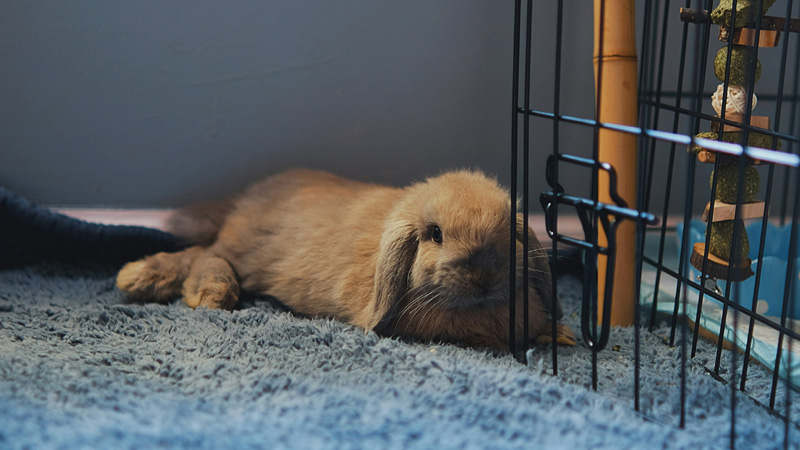
Photo by Leiada Krozjhen on Unsplash
Rabbits are beloved pets cherished for their adorable appearance, gentle demeanor, and affectionate nature. However, one common concern potential rabbit owners may have is whether rabbits emit unpleasant odors when kept indoors. The misconception that rabbits are inherently smelly animals can deter individuals from considering them as indoor pets.
In this article, we'll explore the truth behind rabbit odor indoors, dispelling myths and providing valuable insights into maintaining a clean and odor-free environment for your indoor rabbit companion.
Understanding Rabbit Odor
Contrary to popular belief, rabbits are generally clean animals that groom themselves regularly, similar to cats. They do not have scent glands like some other animals, such as ferrets, which can produce strong odors. However, like any pet, rabbits can contribute to household odors if their living environment is not properly maintained. Factors such as diet, litter box hygiene, and habitat cleanliness play significant roles in determining whether a rabbit emits odors indoors.
Dietary Considerations
A rabbit's diet can directly impact the odor they produce. Feeding your rabbit a balanced diet consisting primarily of hay, fresh vegetables, and a limited amount of pellets can help regulate their digestive system and minimize odor. Avoid overfeeding high-sugar or high-fat treats, as these can lead to gastrointestinal issues and potentially unpleasant-smelling feces.
Additionally, providing fresh water in a clean and accessible water bottle or bowl is essential for maintaining your rabbit's health and hydration. Stale water can develop a foul odor and may discourage your rabbit from drinking an adequate amount, leading to dehydration and potential health problems.
Litter Box Maintenance
Proper litter box hygiene is crucial for minimizing odors associated with rabbit waste. Choose a high-quality, absorbent litter made from materials such as paper or compressed wood pellets. Avoid clumping clay litter, as it can be harmful if ingested and may contribute to respiratory issues in rabbits.
Regularly scoop out soiled litter and replace it with fresh litter to keep the litter box clean and odor-free. Aim to clean the litter box at least once daily, or more frequently if necessary, depending on the size of your rabbit and the litter box. Use a pet-safe disinfectant to thoroughly clean the litter box during weekly cage cleanings to prevent bacterial buildup and odor.
Habitat Cleanliness
Maintaining a clean living environment for your indoor rabbit is essential for minimizing odors and promoting their overall health and well-being. Regularly spot-clean the cage or enclosure to remove any spilled food, soiled bedding, or debris. Use a pet-safe cleaner to wipe down surfaces and remove any lingering odors.
In addition to spot-cleaning, perform a thorough cage cleaning at least once a week to deep-clean the habitat and remove accumulated waste and odor-causing bacteria. Remove all bedding, toys, and accessories from the cage and wash them with mild detergent and hot water. Allow them to dry completely before returning them to the cage.
Environmental Factors
Environmental factors such as temperature, humidity, and ventilation can also influence indoor rabbit odor. Maintain a comfortable room temperature for your rabbit, ideally between 60-70 degrees Fahrenheit, and ensure adequate airflow to prevent stale air from accumulating. Consider using a small fan or opening windows to promote air circulation and reduce humidity levels, which can contribute to unpleasant odors.
Additionally, avoid placing your rabbit's cage in areas with excessive moisture or strong odors, such as near litter boxes, garbage cans, or kitchen appliances. Choose a quiet, low-traffic area of your home where your rabbit can feel safe and secure, away from potential stressors that may affect their behavior and overall well-being.
Conclusion
In conclusion, rabbits are not inherently smelly animals when kept indoors. With proper care, hygiene, and maintenance, you can create a clean and odor-free environment for your indoor rabbit companion. By providing a balanced diet, maintaining litter box hygiene, regularly cleaning the habitat, and considering environmental factors, you can ensure that your rabbit remains a delightful and pleasant addition to your home.
Remember that each rabbit is unique, so it may take some trial and error to find the optimal routine and habitat setup that works best for you and your furry friend. With patience, dedication, and a little bit of effort, you can enjoy the company of your indoor rabbit companion without worrying about unpleasant odors.
You May Also Like
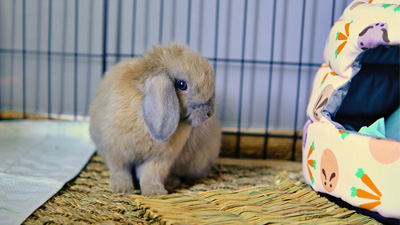 Rabbit BreedsWhich Rabbit Is Best For Beginners?
Rabbit BreedsWhich Rabbit Is Best For Beginners?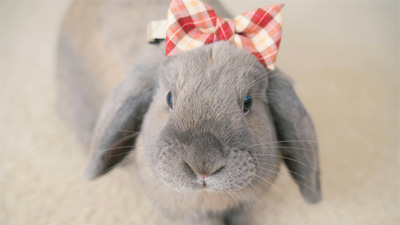 Rabbit BreedsWhich Breed Of Rabbit Is Most Child Friendly?
Rabbit BreedsWhich Breed Of Rabbit Is Most Child Friendly?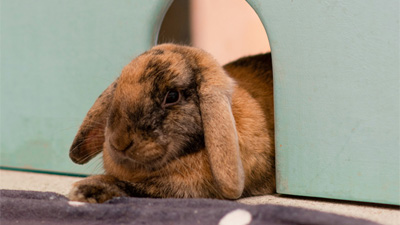 Rabbit BreedsWhat Is The Friendliest Breed of Rabbit?
Rabbit BreedsWhat Is The Friendliest Breed of Rabbit? Rabbit BreedsWhat Breed Of Rabbit Sheds The Least?
Rabbit BreedsWhat Breed Of Rabbit Sheds The Least?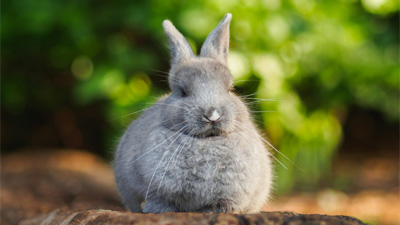 Rabbit Breeds6 Low-Maintenance Rabbit Breeds For Busy Lifestyles
Rabbit Breeds6 Low-Maintenance Rabbit Breeds For Busy Lifestyles Rabbit BreedsWhich Rabbits Are Easiest To House Train? Netherland Dwarf
Rabbit BreedsWhich Rabbits Are Easiest To House Train? Netherland Dwarf